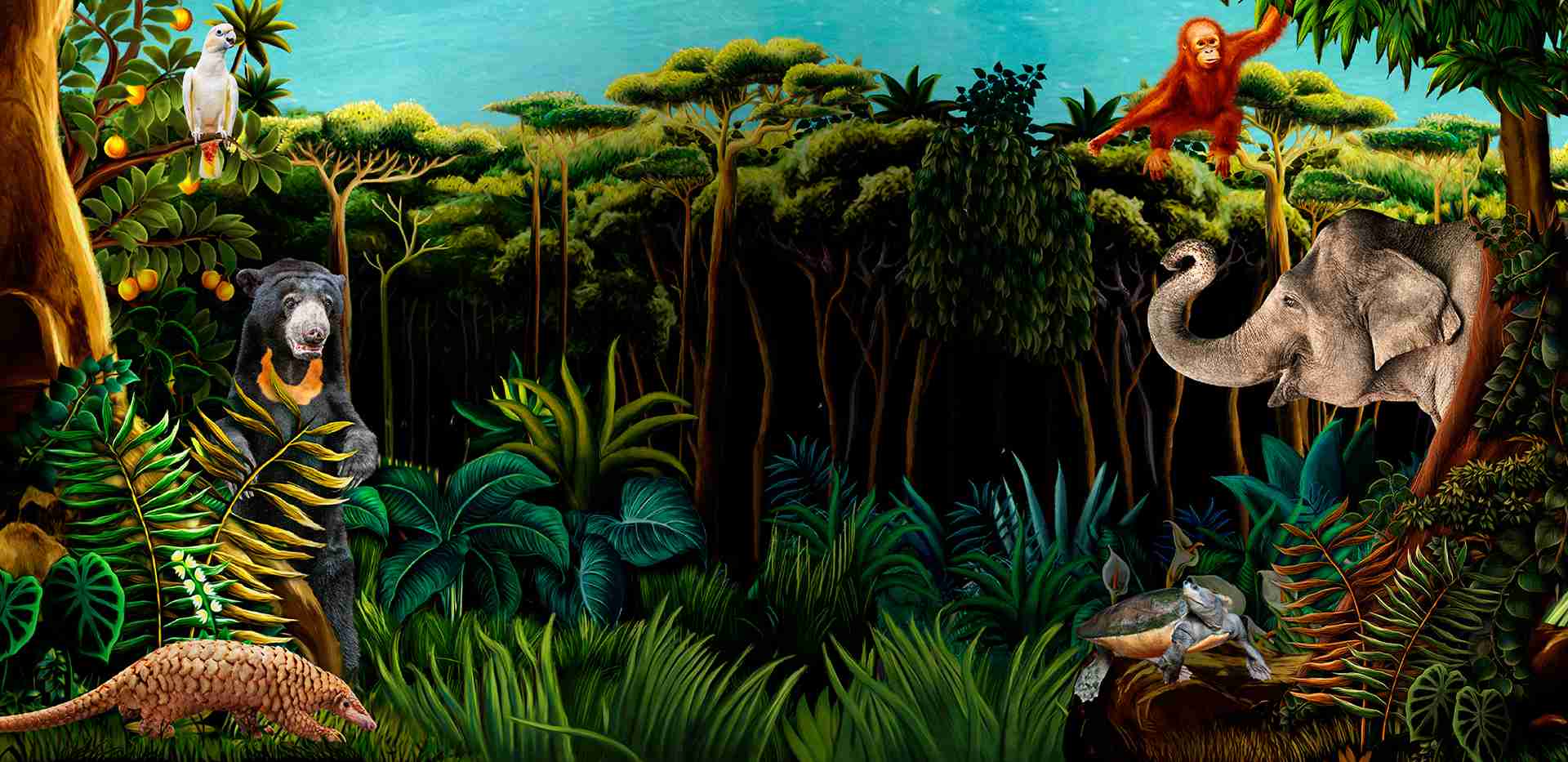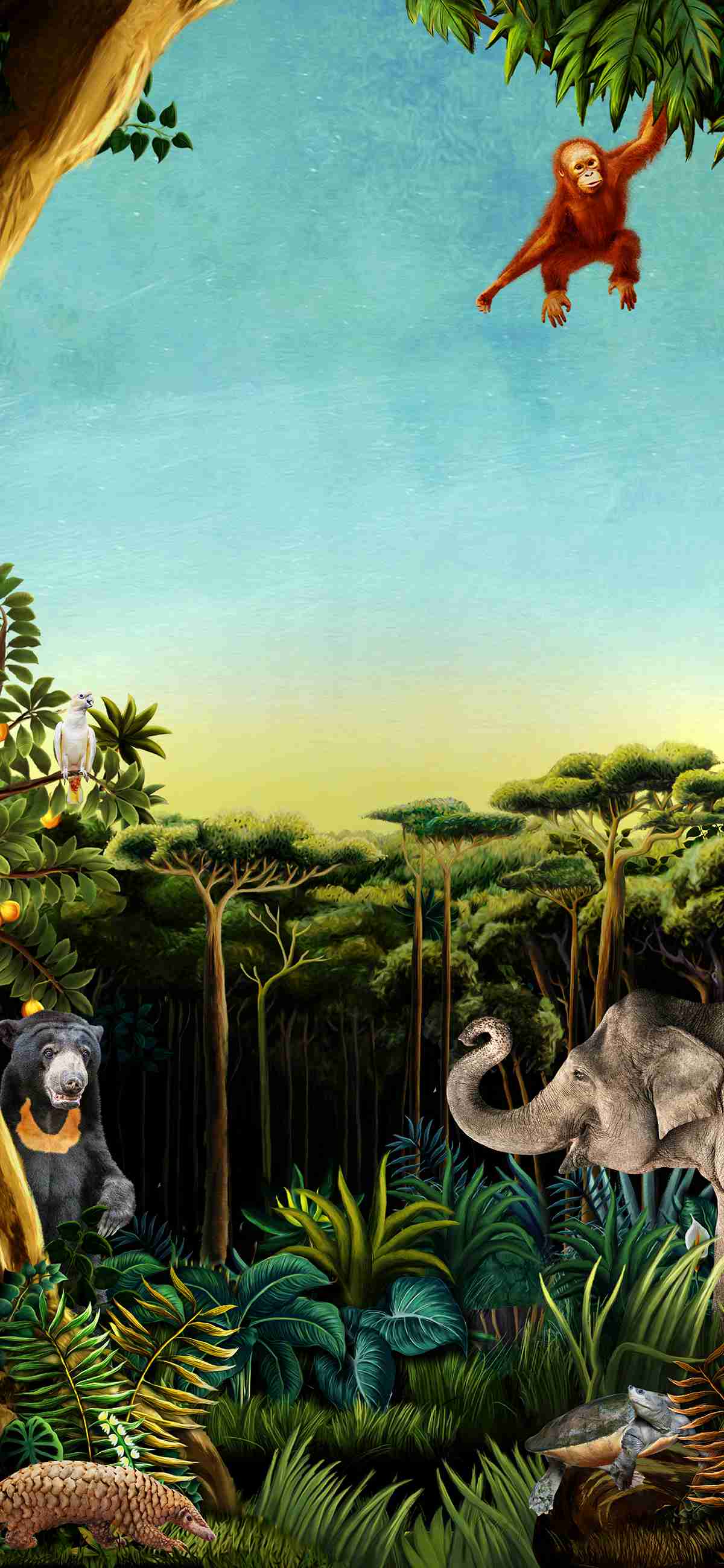Critically Endangered Celebes Crested Macaque Troop Welcomes Baby at Singapore Zoo
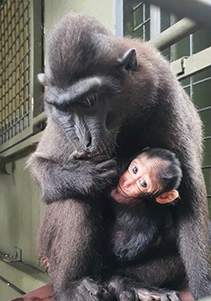
Celebes crested macaque Dewi, welcomed the birth of Joyo, her male newborn in the privacy of an off-exhibit area at Singapore Zoo.
PHOTO CREDIT: WILDLIFE RESERVES SINGAPORE
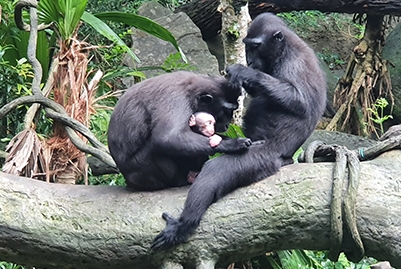
Celebes crested macaques are very social animals. Joyo can often be spotted snuggling up to his mother Dewi and aunt Ria during grooming sessions.
PHOTO CREDIT: WILDLIFE RESERVES SINGAPORE
These stylish macaques with their distinctive hairstyles were propelled to fame when Naruto, a wild specimen living in Sulawesi’s Tangkoko nature reserve snapped a few selfies with an unattended camera. The photos went viral and garnered the species legions of fans worldwide, helping to boost awareness of the conservation needs of this relatively unknown primate.
Up until recently, Celebes crested macaques were considered one of the world’s 25 most endangered primates. While they may have graduated from the list, the species continues to be in peril, and is classified as critically endangered under the IUCN* Red List of Threatened Species.
These social macaques are one of seven distinct species of macaques endemic to the Indonesian island of Sulawesi and its neighbouring islands—meaning they are found nowhere else in the world. More commonly known as ‘yaki’, the wild population of this species has severely declined by as much as 80 per cent in the last 40 years, principally due to the illegal bushmeat trade and habitat loss owing to the expansion of settlements and agricultural lands. In many ways, their plight mirrors the situation of many species native to Sulawesi.
Singapore Zoo’s Celebes crested macaques are part of the EAZA Ex-situ Programme (EEP) for the species, as part of conservation breeding efforts between zoological institutions to protect wildlife and biodiversity. EEPs are managed under the European Association of Zoos and Aquaria (EAZA). The birth of this male infant helps to increase genetic diversity and boosts the sustainability of the population of this critically endangered species in human care.
Besides our breeding efforts in our zoological parks, Wildlife Reserves Singapore has played an active role in the conservation of this unique species in the wild. Since 2016, we have been supporting Selamatkan Yaki, an Indonesian-based conservation project on outreach and field projects to save the iconic species in its natural habitat.
Celebes crested macaques nurse their young for a year and our latest adorable addition can be spotted clinging onto mom Dewi in the exhibit he shares with dad Doni, older brother Agung and another unrelated female Ria.
About EEPs
The aim of EEPs is to conserve healthy and genetically sustainable populations of animals under human care. The programme coordinates and facilitates exchange of animals between participating zoos with the help of experts of the breeding programme. Each breeding programme has a species coordinator who carefully assesses and plans every transfer to ensure that it is in line with the ultimate goal of this conservation breeding programme—to have a genetically diverse population that can sustain itself and potentially be used to help wild populations in decline if the conditions are right.
* International Union for the Conservation of Nature
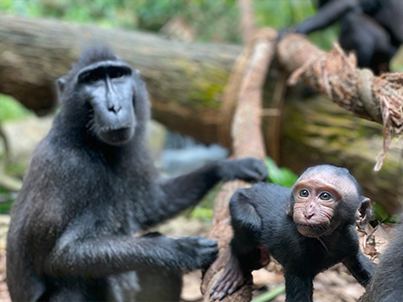
Celebes crested macaques can only be found in Sulawesi and its neighbouring islands. Singapore Zoo’s newborn boy was named Joyo, an Indonesian name which means ‘victorious’.
PHOTO CREDIT: WILDLIFE RESERVES SINGAPORE
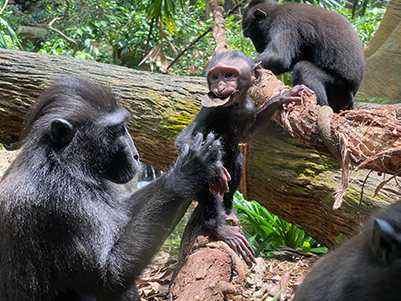
The youngest member of Singapore Zoo’s Celebes crested macaque troupe, Joyo is quickly gaining independence and has started to explore the exhibit under close supervision from mother Dewi.
PHOTO CREDITS: WILDLIFE RESERVES SINGAPORE
